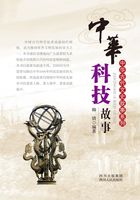Even more potent, perhaps, is the indirect action of (193) communication in making it possible to organize all phases of life on a larger scale and on a more human basis; in promoting democracy and breaking down caste. Under a~ democratic system the masses have means of self-expression; they vote, strike, and print their views. They have power, and this, at bottom, is the source of all respect and consideration.
People of other classes have to think of them, feel with them and recognize them as of a common humanity. Moreover, in tending to wipe out conventional distinctions and leave only those that are functional, democracy fosters the notion of an organic whole, from which all derive and in which they find their value. A sense of common nature and purpose is thus nourished, a conscious unity of action which gives the sense of fellowship. It comes to be assumed that men are of the same stuff, and a kind of universal sympathy梟ot incompatible with opposition梚s spread abroad. It is realized that "there are diversities of gifts but the same spirit."On the other hand, our life is full of a confusion which often leaves the individual conscious only of his separateness, engaged in a struggle which, so far as he sees, has no more relation to justice and the common good than a dog-fight. Whether he win or lose makes, in this case, little difference as to the effect upon his general view of life: he infers that the world is a place where one must either eat or be eaten; the idea of the brotherhood of man appears to be an enervating sentimentalism, and the true philosophy that of the struggle for existence, which he understands in a brutal sense opposite to the real teaching of science. Nothing could be more uncongenial to the we (194) feeling than this view, which unfortunate experience has prepared many to embrace, taking from life, as it does, its breadth and hopefulness, the joy and inspiration of work ing ln a vast and friendly whole.
Probably most of us are under the sway of both of these tendencies. We feel the new idealism, the sweep and exhilaration of democracy, but we practice, nevertheless, a thrifty exploitation of all the private advantages we can decently lay our hands on; nor have we the moral vigor to work out any reconciliation of these principles. Experience shows, I think, that until a higher sentiment, like brotherly kindness, attains some definite organization and programme, so that men are held up to it, it is remarkably ineffective in checking selfish activities.
People drift on and on in lower courses, which at bottom they despise and dislike, simply because they lack energy and initiative to get out of them.
How true it is that many of us would like to be made to be better than we are. I have seen promising idealists grow narrow, greedy and sensual梐nd of course unhappy梐s they prospered in the world; for no reason, apparently, but lack of definite stimulation to a higher life. There is firm ground for the opinion that human nature is prepared for a higher organization than we have worked out.
Certainly there is, on the whole, a more lively and hopeful pursuit of the brotherhood of man in modern democracy than there ever was, on a large scale, before. One who is not deaf to the voices of literature, of social agita tion, of ordinary intercourse, can hardly doubt this. The social settlement and similar movements express it, and (195)-so, more and more, does the whole feeling of our society regarding richer and poorer. Philanthropy is not only extending, but undergoing a revolution of principle from alms to justice and from condescension to fellowship. The wealthy and the educated classes feel, however vaguely, that they must justify their advantages to their fellow men and their own consciences by making some public use of them. Gifts梬ell meant if not always wise梩o education, science and philanthropy are increasing, and there was never, perhaps, a more prevalent disposition to make unusual mental acquirements available toward general culture.
Even the love of publicity and display, said to mark our rich people, has its amiable side as indicating a desire to impress general opinion, rather than that of an exclusive class. Tndeed, if there is anywhere in American society an exclusive and self-sufficient kind of people, they are not a kind who have much influence upon the general spirit.
The same sentiment incites us, in our better moments, to shun habits, modes of dress and the like that are not good in themselves and merely accentuate class lines; to save on private and material objects so as to have the more energy to be humanly, spiritually, alive. This, for example, is the teaching of Thoreau, whose works, especially his Walden, have latterly a wide circulation. If Thoreau seems a little too aloof and fastidious to represent democracy, this is not the case with Whitman, who had joy in the press of cities, and whose passion was to "utter the word Democratic, the word En Masse." [7] His chants express a great gusto in common life: "All this I(196) swallow, it tastes good, I like it well, it becomes mine; I am the man, I suffered, I was there." [8] "Whoever degrades another degrades me." [9] "By God! I will accept nothing which all cannot have their counterpart of on the same terms." [10] " I believe the main purport of these states is to found a superb friendship, exalte, previously unknown." [11]
On the whole, Americans may surely claim that there was never before a great nation in which the people felt so much like a family, had so kindly and cheerful a sense of a common life. It is not only that the sentiment has a wider range; there is also more faith in its future, more belief that government and other institutions can be made to express it. And the popular agitation of all countries manifests the same belief梥ocialism, and even anarchism, as well as the labor movement and the struggle against monopoly and corruption.
A larger spirit of service is the active side of democratic feeling.















